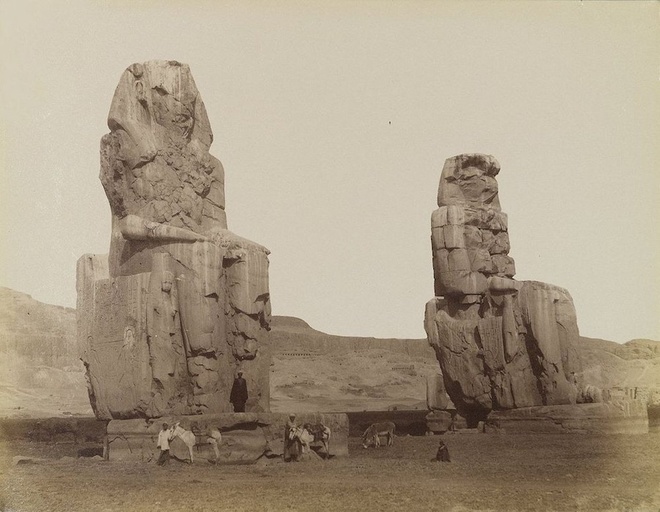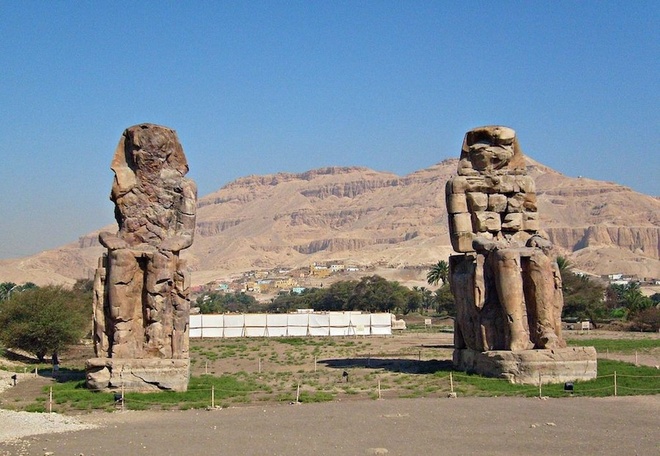Pair of giant stone statues emit a mysterious sound in Egypt
Non-stop making strange sounds like singing, giant stone statue of Memmon on the banks of the Nile in Egypt world famous attracts many Greeks to visit from thousands of years ago.
These giant stone statues are also known as El-Colossat and Es-Salamat. This is a masterpiece originating from the Pharaoh Amenhotep III period in 1350 BC to guard the gate of an ancient temple worshiping this king. And after 3,400 years these ancient statues still existed almost intact.

The two statues were carved in a sitting posture, hands on the knees, face facing the Nile and about 18m high. Both are made of quartz stones that are mined and transported from the current location about 675km.
However, the special feature that attracted the attention of the pair of gods Memmon is the strange sound emanating from the statue like singing.

Decipher the mysterious "singing" origin from ancient statues
In 27 BC, a large earthquake caused the northern statue to collapse from the waist down and crack the lower half.
Since then, every early morning when the Sun started to grow, the statue made a strange sound like "singing". This mysterious strange thing was first discovered by the historian Strabo and the geographer Pausanias. According to the records of the ancient book, the sound of the statue came out like the sound of the wind, but the geographer of Pausanias said that it was like a " string of lyrebirds ", others considered it to be a flute.

According to experts, this is a natural phenomenon, it is the rise in temperature that causes the mist to evaporate, passing through cracks to create a sound like singing.
The bizarre sound of the statue was so attractive and famous that some Roman emperors personally went to Egypt to admire and listen to "singing".
But in 199, when the Roman Emperor Septimius Severus repaired and restored the two statues, this strange sound disappeared.
During the eighteenth and nineteenth centuries, some tourists claimed that they had heard the sound that had disappeared for more than a thousand years from the ancient statue of Egypt, but there were no convincing reports.
Who is Memnon really?
Memnon is the name of the king of Ethiopia, the head of the army protecting Troy, but eventually he dies under Achilles' hand.

According to legend, Memnon is the son of the goddess of dawn Ecos. After Memnon died, the goddess loved her son and shed tears for the ill-fated son every early morning.
Because of this coincidence, many people believe that the sound emanating from the statue is the cry of King Memnon or the goddess Ecos.
Therefore, many tourists mistakenly believe that the ancient stone statues were of King Memnon and not some Egyptian Pharaoh.
- Discover Napoleon's horrifying nocturnal mystery in the Egyptian pyramid
- The secret of the larger pyramid works in Egypt
You should read it
- ★ Mysterious curse of Egyptian Pharaoh - Tutankhamun (part 2)
- ★ Mysterious curse of Egyptian Pharaoh - Tutankhamun (part 1)
- ★ The groundbreaking archaeological findings about ancient Egypt
- ★ Ancient statues of gods hold 'modern handbags', evidence of traveling through time?
- ★ The glittering gold warehouse in the ancient Egyptian tomb of Pharaoh Tutankhamun